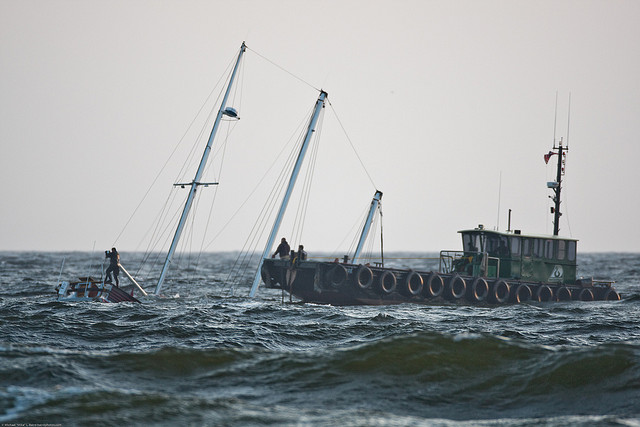There are obviously an abundance of career paths that a person can take, but for those with a real love for the sea, there are only so many jobs that will satisfy. This affection for the open waters of the world leads many individuals into maritime careers. From working on commercial fishing vessels to engineering on a cruise ship; the possibilities are almost endless. Unfortunately, these jobs are inherently dangerous, and this means that anyone engaged in them should be properly prepared if the worst was to happen.
Preparation is Key
Maritime careers are some of the most risky out there. In fact, one of these careers, commercial fishing, has consistently been ranked as one of the most dangerous jobs in America. Because of these risks, maritime workers should be fully prepared in case they suffer an accident.
Unfortunately, this means having their last will and testament in place and granting a loved one power of attorney. Many maritime workers choose to forgo these steps, but in the end, it can prove detrimental if they have any assets.
Fortunately, the majority of maritime injuries don’t prove fatal. What’s unfortunate, however, is that workers will still have bills after their injury. Even when these individuals are entitled to some form of compensation, the process of receiving it can take time.
This is why everyone who works on the water should have a few months of emergency bill money saved up. This will allow them to get through the initial difficult times while waiting for financial assistance from an employer.
Staying Safe
Just because maritime work is dangerous, it doesn’t mean that there aren’t measures that can be taken to reduce accidents. Just by following a few simple rules, seamen can decrease their risk of being injured by negligent individuals or freak accidents.
- Use Harnesses:
Some of the main killers on shipping vessels are falling accidents. When any work requires working from high perches, it’s imperative to wear a harness.
- Stay Clear of Machinery:
It may be tempting to get close to machinery to get a bird’s eye view of the work being performed, but this is a major cause of shipping accidents. Being struck by or caught in between any heavy equipment can prove fatal.
- “If you see Something, say Something:
“ This motto gained notoriety in the war on terror, but it also holds true for maritime work. If machinery or equipment appears to be faulty or if coworkers are engaged in potentially dangerous behaviors, it’s essential to say something to prevent a serious accident.
After an Accident
Unfortunately, regardless of how safe a worker tries to be on their vessel, the chance always exists that an accident will occur. What’s even worse is the fact that the negligence of coworkers, captains, ship owners, manufacturers and a host of other individuals can lead to serious accidents for even the most safety conscious worker. Luckily, the law provides certain protections for maritime employees in these situations.
Any maritime worker injured while performing their job would do well to contact an admiralty maritime attorney. These professionals can help in the process of filing a Jones Act claim. According to one maritime law group, “your rights and opportunities to recover monetary compensation under the Jones Act and other maritime laws may be much different than those in any other type of injury case.”
The Jones Act actually allows injured maritime workers to bring forth lawsuits against negligent parties in their accident. Typical worker’s compensation laws usually bar an employee from doing this, but due to the increased risk of danger out on the seas, seamen are entitled to additional protections.
Maritime work is only for those who are willing to put in the hard work to be in a career that they really love. It should never be forgotten, though, that there are seemingly an infinite amount of catastrophes that could take place during day-to-day activities on commercial vessels. This means that an individual must be vigilant, both on and off the ship, if they want to ensure their family’s financial security. Accidents are bound to happen, and the biggest tragedy arises when a person isn’t prepared for them.
Author Molly Pearce often writes on the subjects of law, health, and human rights to provide new information on topics that are important in many lives. Her online research was conducted, in part, on http://www.doyleraizner.com/admiralty-maritime-law. She hopes this post will shed some light on some legal issues involving offshore work and injury.
Photocredit: http://www.flickr.com/photos/mikebaird/3484648472/

